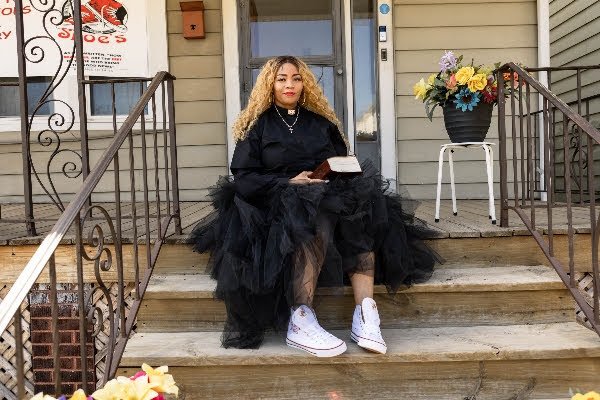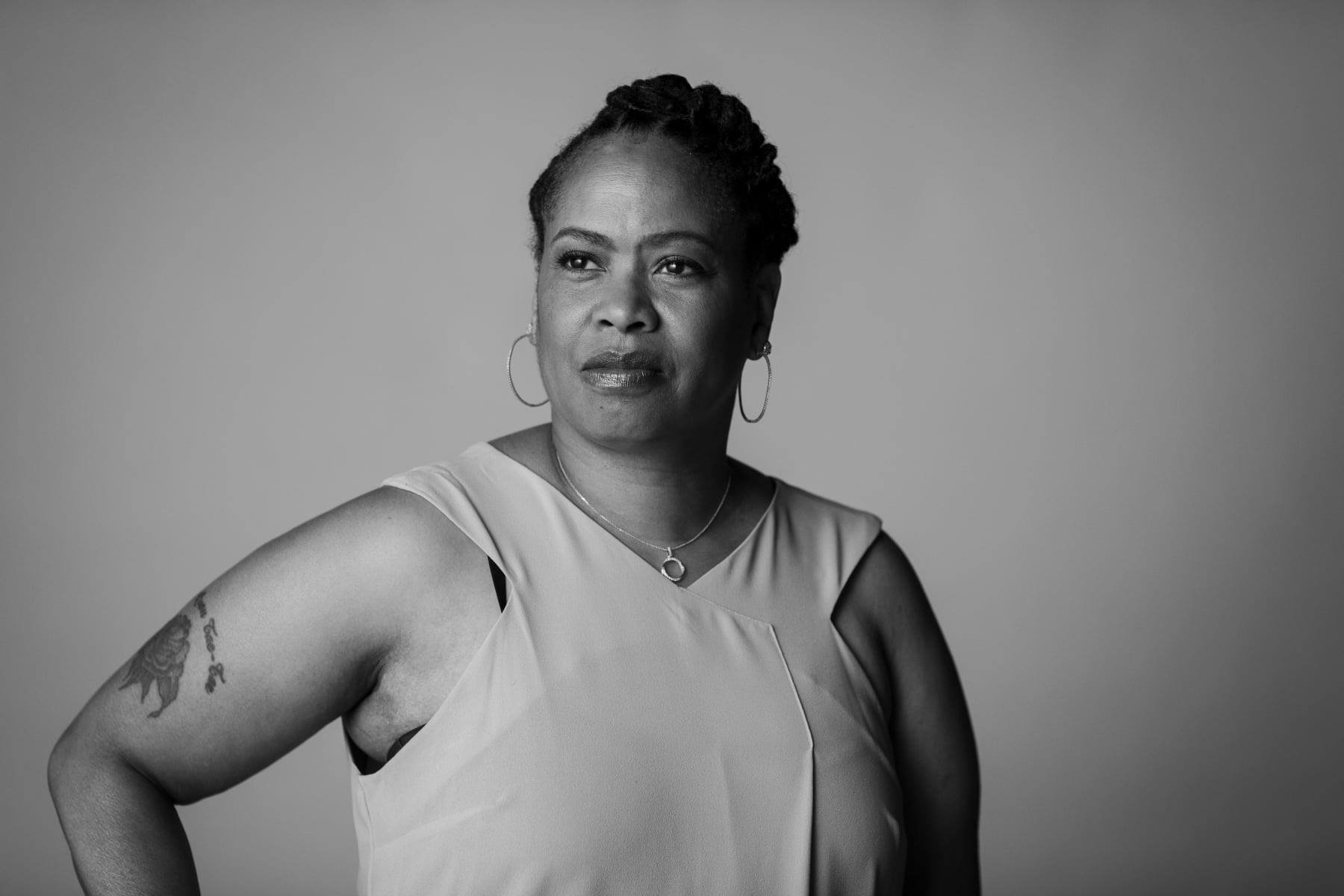Narrating through the Carceral Divide
From May 2022–May 2023, three NPHM-trained Oral History Corps Members take on new roles as Oral History Research Corps Members with their project, Narrating through the Carceral Divide.
As prison abolition is increasingly debated in the United States, it is apparent that significant structural barriers prevent those most impacted by mass incarceration from having their perspectives heard, respected, and acted upon. Given:
The public housing-to-prison pipeline created by over-policing of public housing communities,
The legalized exclusion of previously-incarcerated people from housing assistance eligibility, and
Prisons being the largest and fastest growing form of state-funded housing in the country,
our collective need to listen to those most directly impacted by the carceral state is urgent.
This social and political backdrop, combined with the Museum’s social justice commitments, leads the NPHM Oral History Research Corps to their multidisciplinary research. They seek to understand, document, and propose solutions to the many barriers that prevent those most impacted by mass incarceration from participating in and leading audio-based storytelling and research projects. The Research Corps is also deeply invested in understanding incarcerated peoples’ perspectives on the research that is done on them, and in creating a precedent for participatory research that gives incarcerated people power in the research process.
Through their existing work within the carceral system, as well as anonymous interviews with currently and formerly incarcerated people, and conversations with other project managers of audio-based projects related to incarceration, the Research Corps will write a White Paper describing the state of the field. This will be followed by a community-based participatory research project with currently and formerly incarcerated community members.
Research Questions:
How are the bodies of knowledge created in community spaces, academic spaces, and political/governmental spaces valued differently and given different levels of influence in policy making? How is prison reform impacted when these different bodies of knowledge are valued differently? Who is heard first? Who is thought of last?
How can the tools of oral history be used for understanding the relationship between prisons, poverty, and public housing?
What barriers currently prevent oral history from being mobilized in the prisons? What changes (policy or otherwise) must be implemented to enact oral history praxis with this population?
How can we consider housing policy expansively, through the stories that have been and are being collected from those impacted by incarceration?
All three of our Research Corps members have lived experience in both public housing and the carceral system, making them the ideal people to conduct this research. They are:
Troy Gaston (he/him)
Image Description: A Black man with dreads holds a Black Lives Matter flag at a city intersection. He is enthusiastically talking to onlookers while wearing a neon yellow vest, a Black Power shirt, and matching neon yellow shoes.
Troy (former Robert Taylor Homes resident) is an organizer with Black Lives Matter, a McNair Graduate from Roosevelt University with a degree in Political Science and a Minor in Legal Studies, and a 2022 Chicago United for Equity (CUE) Community Building Fellow. Troy recently started his Ph.D. in Political Science at the University of Illinois Chicago (UIC), continuing his research centered on Black women impacted by the carceral system (with particular emphasis on community within the Robert Taylor Homes).
Maria Moon
Image Description: A Black women in a black shirt, a poofy black skirt, and white tennis shoes sits on the front steps of the Church Shoes Ministry House. There are beautiful flowers beside her. She has a thick book in her hand and is wearing a cross and a clerical collar.
Maria (former Henry Horner Homes resident) has worked in policy and advocacy for over 7 years, and is currently the Senior Housing Justice Organizer with the Chicago Area Fair Housing Alliance. She is also a current student at the Jacob H. Carruthers Center for Inner City Studies at Northeastern Illinois University. In the midst of the COVID-19 crisis, Maria felt led to launch Church Shoes Global Street/Prison Ministry along with a Ministry House to serve most vulnerable populations such as formerly incarcerated individuals.
Colette Payne (she/her)
A Black woman with pulled back hair, delicate hoop earrings, and a necklace stands tall with her hands on her hips. She gazes forward into the distance, looking determineda
Colette (former Ida B. Wells Homes resident) is an organizer, leader, student, mother, and grandmother, with a passion is to educate families to build healthier communities. Currently, she serves as the Director of the Reclamation Project for the Women’s Justice Institute. In her role, she helps engage women directly impacted by the criminal legal system to become agents of change and to create solutions to end the incarceration of women and girls. She frequently speaks at community events on topics ranging from the reunification of children and mothers, reproductive justice, mental health care, the need for increased programming in prison, and barriers to employment for people with criminal records. From 2014 – 2017, Colette was the Coordinator of the Visible Voices program for CLAIM (Chicago Legal Advocacy for Incarcerated Mothers), a Program of Cabrini Green Legal Aid. In 2015, Colette joined the delegation to assess women’s prisons in Illinois, becoming the first formerly incarcerated woman to serve in this role in the entire United States. Colette has appeared on television and spoken at conferences, churches, and universities, and testified before legislative committees. Colette has received numerous awards for her work, including Claim’s JoAnn Archibald Award (2013), Jane Adams Center for Social Policy and Research, Community Leadership Award (2015) and the Safer Foundation’s Carre Visionary Award (2018). Most recently, Colette was a recipient of the Chicago Foundation for Women 2020 Impact Award for her dedication to improving the lives of women and girls in the Chicago area. In May 2022, Colette graduated from the University Without Walls program at Northeastern Illinois University with her Bachelors degree in Women, Incarceration, and Change.
The NPHM Oral History Research Corps is supervised by the Oral History Archive & Corps Manager, Liú Méi-Zhì Chen. If you have any questions or concerns, you can email them at lchen@nphm.org.
The Oral History Research Corps would also like to thank Hannah Barg, another NPHM Oral History Corps alumna, for her valuable support in drafting the OHA/NEH grant application for this project.
This project has been made possible in part by a grant from the Oral History Association and the National Endowment for the Humanities. Any views, findings, conclusions, or recommendations expressed in this program do not necessarily reflect those of the Oral History Association or National Endowment for the Humanities.







